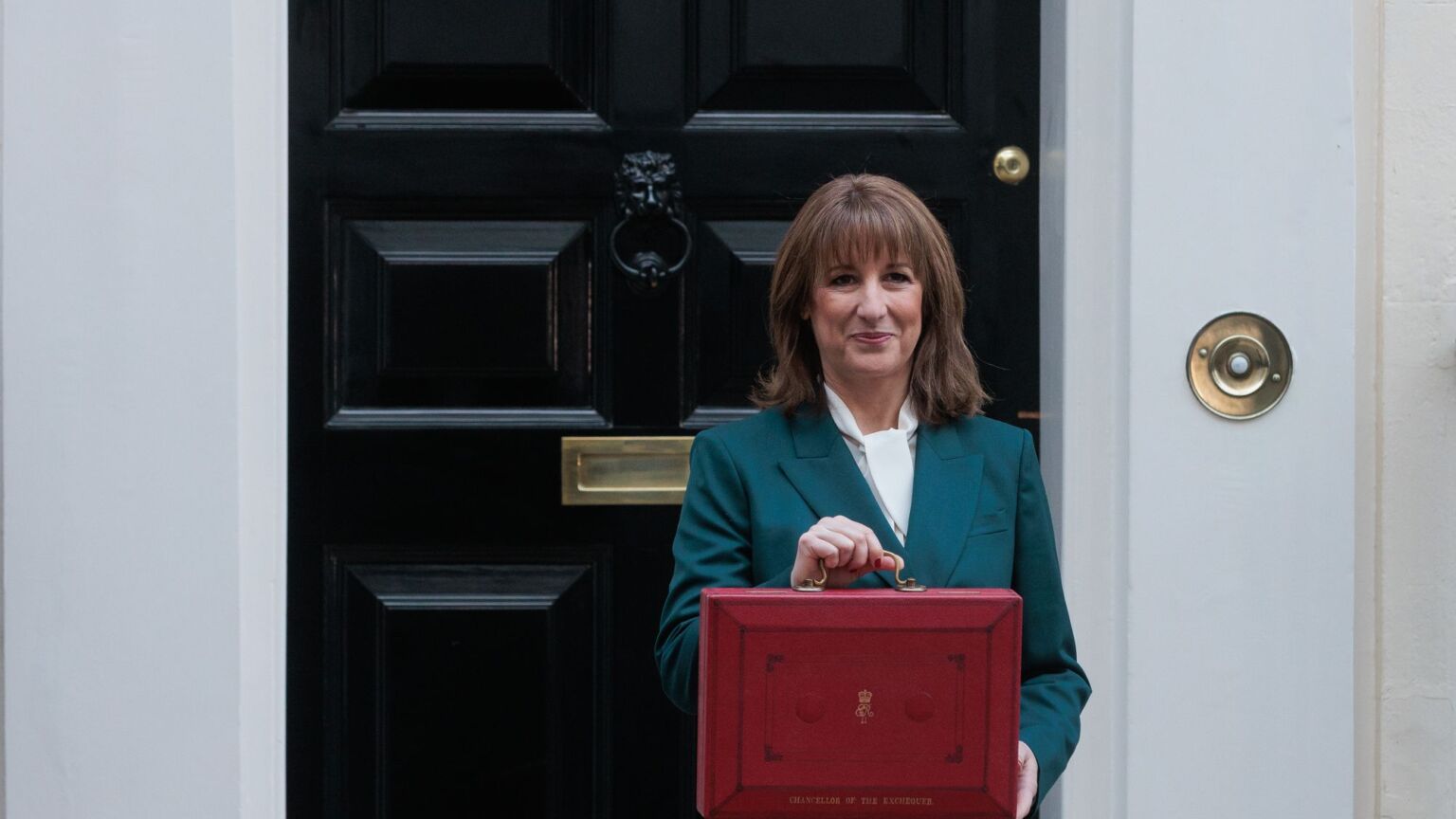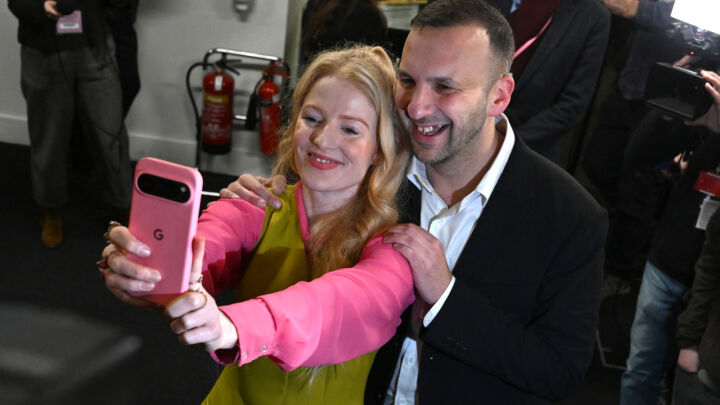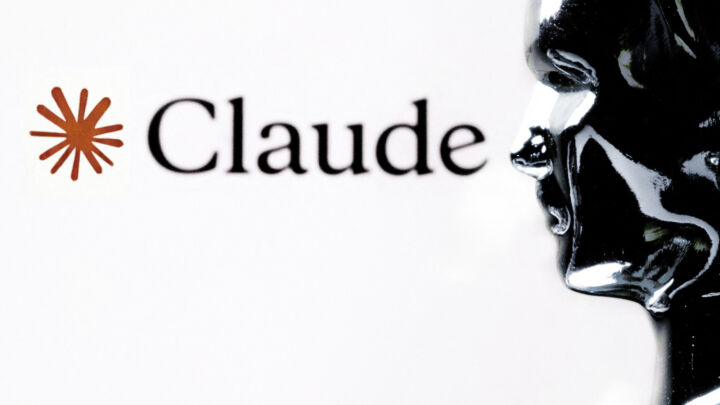Has there ever been a chancellor as detached as Rachel Reeves?
This budget has exposed the folly of technocratic managerialism.

Want unlimited, ad-free access? Become a spiked supporter.
After this shambolic budget, it is now beyond doubt: no one should believe a word uttered by the chancellor of the exchequer. Forget Rachel Reeves’s solemn waffle about never ‘losing control of the public finances’, laying ‘strong foundations’ and focussing on the ‘priorities of the British people’. Her budget statement this week amounted to a litany of broken pledges – including some made only weeks ago.
The first pledge came last November, when Reeves told the Treasury Select Committee that her first tax-raising budget represented a ‘once-in-a-parliament reset’. That budget raised taxes by £40 billion and, she insisted, would draw a decisive line under the Conservatives’ ‘fictitious’ spending plans. Public finances were now on a ‘firm footing’, and the ‘trajectory of public spending’ was ‘much more honest’. ‘We will never need to do another budget like this again’, she said. She added that Labour would not be returning with further tax rises, nor with more borrowing.
Yet nothing material has occurred since November that Reeves could not have foreseen. Nevertheless, her new budget adds a further £26 billion in taxes by 2029 and drives borrowing forecasts higher for this year and the next three. ‘Once only’ and ‘never again’ have rarely been such worthless assurances to the public.
The second of the abandoned promises was made in the first budget itself. In October 2024, Reeves ruled out freezing income-tax thresholds for any longer than the previous government had planned. She said doing so would ‘hurt working people’. From 2028-29, thresholds would again rise in line with inflation. ‘When it comes to choices on tax’, she said, ‘this government chooses to protect working people every single time’.
Yet the government’s largest single tax rise in the new budget comes precisely from extending those frozen thresholds for another three years. By her own standards, Reeves is actively penalising the workers she claimed to defend by breaking this promise.
Her third pledge was made in an unusual pre-budget speech from Downing Street at the start of November, where she flouted tradition by announcing her priorities ahead of her statement to the Commons. Alongside protecting the NHS and easing the cost of living, she framed the budget’s most concrete mission as ‘reducing our national debt’. In her televised address, she insisted not once, but six times, that cutting the debt was essential for ‘resilient public finances’ and ‘an economy that works for everyone’.
Yet even as she repeated these claims in her budget statement this week, the Office for Budget Responsibility (OBR) – whose report was accidentally published early – revealed that national debt will in fact continue to rise every year of this parliament. Public-sector net debt is forecast to increase by another £642 billion by 2029 – roughly equivalent to twice the UK’s annual welfare spending. In terms of Britain’s debt-to-GDP ratio, this climbs each year from 99.8 per cent to 105 per cent. Only in the land of fairies can relentless debt increases be described as reductions.
Taken together, these three violations illustrate an uncomfortable truth: the British public cannot trust what this government says about the nation’s finances. The gulf between ministers’ declarations and economic reality is now a chasm.
In her spirited response to Reeves’s statement, opposition leader Kemi Badenoch urged the chancellor to stop blaming others and instead blame herself. While Reeves certainly has much to answer for, it is ultimately misleading to hold her alone responsible for this politically and economically alarming state of affairs.
It is not that Reeves doesn’t embellish the truth – she plainly does. Nor is it because she inherited a dismal landscape from the Conservatives – she did. Nor because she has avoided making matters worse – she has, in several ways, compounded the problems. Rather, the deeper issue is that the political system itself now produces figures like Reeves: technocratic managers who lack both authority and genuine democratic accountability.
Reeves, Starmer and their cabinet colleagues merely personify the impotence of this type of managerialist politician. Replacing Reeves with another figure from the same political class, Tory or Labour, would not alter the fundamentals. As the list of her underwhelming predecessors – Hunt, Kwarteng, Zahawi, Sunak, Javid, Hammond, Osborne and others – makes clear, this is not a problem peculiar to one party, still less to one individual. The decline goes back decades.
What we are witnessing is the culmination of a long-running shift. For most of modern British history, governments were elected to pursue defined political programmes. Whether one liked those programmes or not, they were recognisably political and oriented towards social improvement as the government understood it. Voters could then judge, reward or punish them accordingly.
Since the late 1980s, that democratic model has withered. Political leadership, rooted in ideological contestation, has been replaced by a hollow competition between rival management teams, each pledging to administer the status quo more competently than the other. In the process, the state itself has transformed: from an enabling state to an administrative, regulatory state; from a state that would once occasionally step in to tackle crises to a perennial caretaker, which acts to permanently preserve the present.
After four decades of depoliticisation, it is no wonder that bland administrators like Starmer and Reeves have risen to the top. The problem with these ‘managers’ is not simply that they are uninspiring. It is that they are so estranged from the public that they lack the capacity to achieve anything substantial. In a democracy, power requires the engaged consent of the population. Lacking that consent, today’s political elites appear increasingly impotent, unable to steer events and incapable of decisive change.
This estrangement explains the budget’s vacillations. With no national programme beyond abstract aspirations, and with no real accountability to voters, No11 spent weeks drifting between technocratic suggestions to meet Reeves’s self-imposed fiscal rules. Trial balloons were floated to the media, then hastily abandoned. U-turn followed u-turn.
With the public squarely out of the picture, various lobby groups were able to exercise a disproportionate influence. Bankers successfully resisted new levies. Lawyers and accountants fended off the threat of higher partnership taxes. Supermarkets, however, failed to secure an exemption from business-rate hikes. Online gambling companies could not prevent substantial tax rises. Remarkably, a government with the second-largest Commons majority since the Second World War capitulated to pressure from its own backbenchers – as it had previously done over winter-fuel payments and tentative welfare reforms.
All this unfolded despite the fact that public opinion is clear on what needs to be done to get the finances under control. Recent polling showed two-thirds of voters preferred spending cuts over tax rises. For years, majorities have called for substantial welfare reform. A large majority wishes to retain the two-child benefit cap. Reeves herself had long insisted that lifting the cap would be unaffordable. Yet her team has now yielded to internal critics and scrapped it, embracing the fantasy that new spending never requires trade-offs. Welfare spending is therefore projected to continue climbing sharply, rising another £16 billion a year by the end of this parliament.
The absence of any overarching political goal leaves the budget as a potpourri of disconnected measures. Tellingly, the deputy speaker, Nusrat Ghani, rebuked the government for an ‘unprecedented’ deluge of pre-budget briefings to the media – an affront to parliamentary convention that captured the shoddiness of the process.
At root, this budget reflects a political class estranged from the citizens it is meant to represent. Whoever occupies 11 Downing Street, this will not change until popular concerns – real democratic accountability – once again sit at the heart of national politics. Until then, Britain will be governed not by leaders but by managers, bound to repeat the same cycle of drift, denial and disappointment.
Phil Mullan’s Beyond Confrontation: Globalists, Nationalists and Their Discontents is published by Emerald Publishing. Order it from Amazon (UK)
You’ve hit your monthly free article limit.
Support spiked and get unlimited access.
Support spiked and get unlimited access
spiked is funded by readers like you. Only 0.1% of regular readers currently support us. If just 1% did, we could grow our team and step up the fight for free speech and democracy.
Become a spiked supporter and enjoy unlimited, ad-free access, bonus content and exclusive events – while helping to keep independent journalism alive.
Monthly support makes the biggest difference. Thank you.










Comments
Want to join the conversation?
Only spiked supporters and patrons, who donate regularly to us, can comment on our articles.